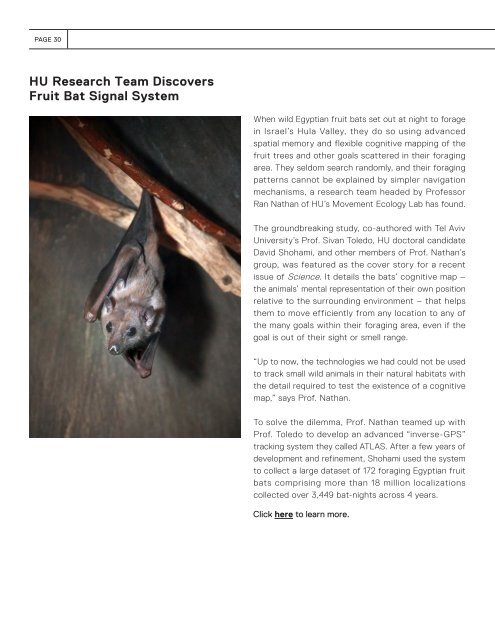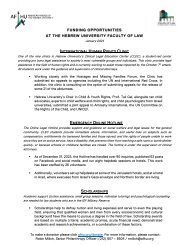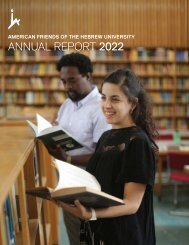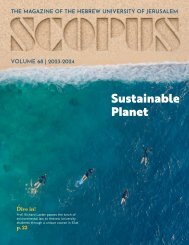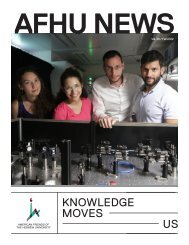FINAL_AFHU_News_11.4.20
You also want an ePaper? Increase the reach of your titles
YUMPU automatically turns print PDFs into web optimized ePapers that Google loves.
PAGE 30<br />
HU Research Team Discovers<br />
Fruit Bat Signal System<br />
When wild Egyptian fruit bats set out at night to forage<br />
in Israel’s Hula Valley, they do so using advanced<br />
spatial memory and flexible cognitive mapping of the<br />
fruit trees and other goals scattered in their foraging<br />
area. They seldom search randomly, and their foraging<br />
patterns cannot be explained by simpler navigation<br />
mechanisms, a research team headed by Professor<br />
Ran Nathan of HU’s Movement Ecology Lab has found.<br />
The groundbreaking study, co-authored with Tel Aviv<br />
University’s Prof. Sivan Toledo, HU doctoral candidate<br />
David Shohami, and other members of Prof. Nathan’s<br />
group, was featured as the cover story for a recent<br />
issue of Science. It details the bats’ cognitive map –<br />
the animals’ mental representation of their own position<br />
relative to the surrounding environment – that helps<br />
them to move efficiently from any location to any of<br />
the many goals within their foraging area, even if the<br />
goal is out of their sight or smell range.<br />
“Up to now, the technologies we had could not be used<br />
to track small wild animals in their natural habitats with<br />
the detail required to test the existence of a cognitive<br />
map,” says Prof. Nathan.<br />
To solve the dilemma, Prof. Nathan teamed up with<br />
Prof. Toledo to develop an advanced “inverse-GPS”<br />
tracking system they called ATLAS. After a few years of<br />
development and refinement, Shohami used the system<br />
to collect a large dataset of 172 foraging Egyptian fruit<br />
bats comprising more than 18 million localizations<br />
collected over 3,449 bat-nights across 4 years.<br />
Click here to learn more.


